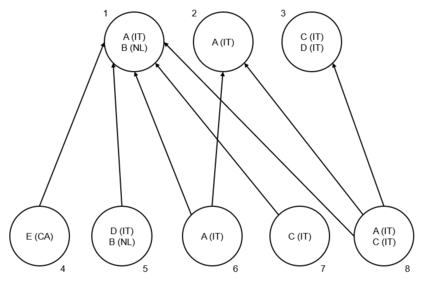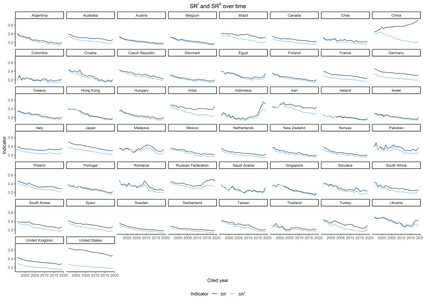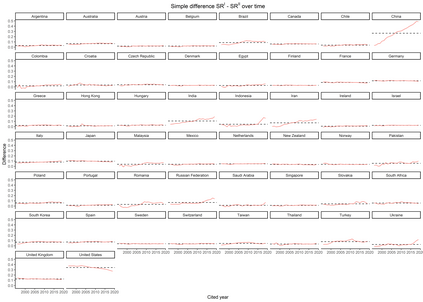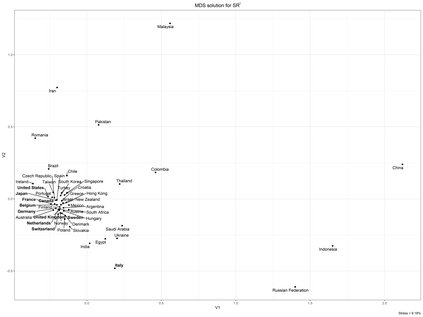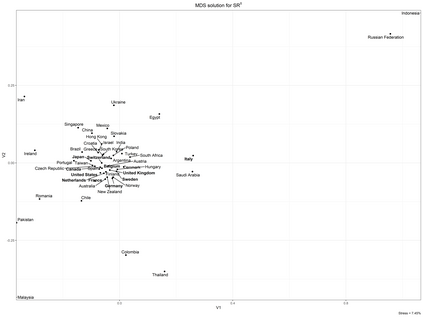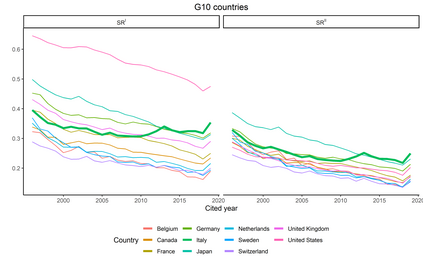Self-citations are a key topic in evaluative bibliometrics because they can artificially inflate citation-related performance indicators. Recently, self-citations defined at the largest scale, i.e., country self-citations, have started to attract the attention of researchers and policymakers. According to a recent research, in fact, the anomalous trends in the country self-citation rates of some countries, such as Italy, have been induced by the distorting effect of citation metrics-centered science policies. In the present study, we investigate the trends of country self-citations in 50 countries over the world in the period 1996-2019 using Scopus data. Results show that for most countries country self-citations have decreased over time. 12 countries (Colombia, Egypt, Indonesia, Iran, Italy, Malaysia, Pakistan, Romania, Russian Federation, Saudi Arabia, Thailand, and Ukraine), however, exhibit different behavior, with anomalous trends of self-citations. We argue that these anomalies should be attributed to the aggressive science policies adopted by these countries in recent years, which are all characterized by direct or indirect incentives for citations. Our analysis confirms that when bibliometric indicators are integrated into systems of incentives, they are capable of affecting rapidly and visibly the citation behavior of entire countries.
翻译:自译自审是评价性生物计量中的一个关键专题,因为自评可以人为地增加与引证有关的业绩指标。最近,以最大规模界定的自评,即国家自评,开始引起研究人员和决策者的注意。根据最近的一项研究,诸如意大利等一些国家的国家自评率的异常趋势事实上是由以引证为主的科学政策扭曲效应引起的。在本研究中,我们调查了1996-2019年期间世界上50个国家采用Scopus数据进行的国家自评的趋势。结果显示,大多数国家自评率随着时间的推移有所下降。有12个国家(哥伦比亚、埃及、印度尼西亚、伊朗、意大利、马来西亚、巴基斯坦、罗马尼亚、俄罗斯联邦、沙特阿拉伯、泰国和乌克兰)表现出不同的行为,以自评为主的反常态趋势。我们认为,这些反常现象应归因于这些国家近年来采用的积极性科学政策,所有这些政策都以直接或间接的奖励措施为特征,这些反常地鼓励了它们迅速采用的行为。我们的分析证实,当我们的分析证实,当它们能影响两极分数的国家的综合指标时,我们的分析证实,它们成为了能够迅速衡量的国家。</s>


